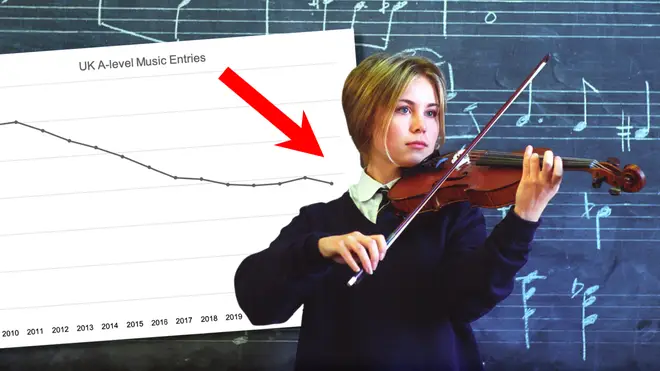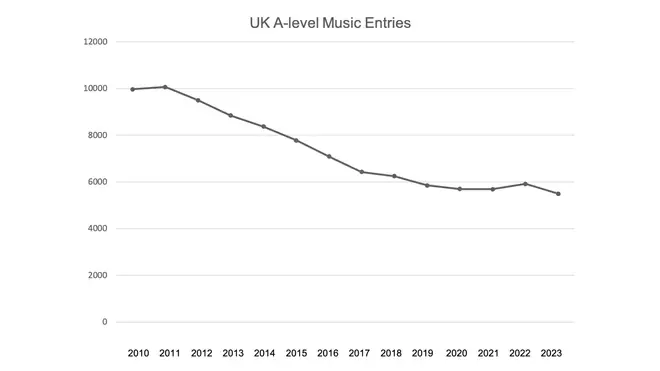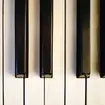Music A-level exam entries in the UK fall by a staggering 45 percent to all-time low
17 August 2023, 14:51

Exam results day reveals that since 2010, the number of pupils studying music A-level in England has almost halved.
Listen to this article
This academic year marked a record low for A-level music, with only 5,493 of 800,000 pupils taking music as one of their subject choices.
Figures from A-level results day reveal that music entries have dropped by a total of 45 percent since 2010 across the UK, and A-level music entries have fallen by 4 percent from 2022.
In 2010, 9,969 students took Music A-level – 4,476 more entrants than this year.
The Independent Society of Musicians (ISM) called the drop “truly devastating”, and called on the government to act.
Chief executive Deborah Annetts said: “The evidence is now overwhelming that the government needs to reform accountability measures in England which are marginalising arts subjects in our schools. All students deserve access to high-quality music education”.
Read more: A-level music entries rise by 4 percent, in first uplift in over a decade

In 2010, the government introduced the English Baccalaureate (EBacc), an accountability measure in England.
The EBacc is a selection of core subjects taken at GCSE on the recommendation of the Department for Education. These subjects include English language and English literature, Maths, Science, Computer science, History or Geography, and a language.
The ISM highlighted in their reaction to this year’s decline in figures that none of the EBacc recommendations includes an arts subject, leaving less room for students to choose a creative GCSE.
Subsequently, if the EBacc sways a student’s choice of GCSEs, it is less likely they will take this subject on further to A-level.
Read more: Can you answer these A-Level music questions? Find out if you would pass first time...

Lang Lang highlights the lack of music education in state schools
Last year, there was a hopeful uptick in music A-level entries, with entrants rising by 4 per cent. However, the 2023 results revealed record-low figures.
Describing the latest figures as “unsurprising”, ISM pointed to its 2022 report Music: A subject in peril? which found that some students who wanted to take a music qualification were unable to, because the subject was not a GCSE or A-level option at their school.
In the report, one teacher told the ISM in a survey response that no secondary schools in their city offered A-level music.
Music wasn’t the only concern to arise during the 2023 results day. A-level results in England saw their biggest drop on record, with the proportion of A*-A grades falling from 35.9 percent to 26.5 percent.


































